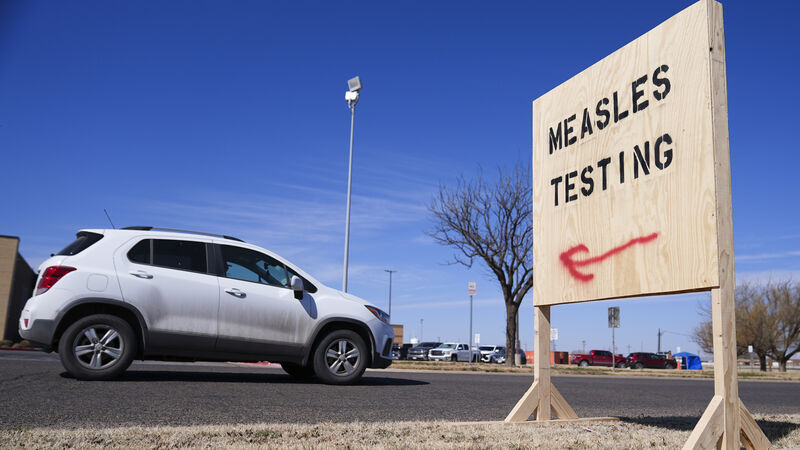Measles is killing children in Texas. We can, and should, stop it in its tracks here

A sign outside Seminole Hospital District offering measles testing in Texas last month. Once vaccination rates drop below around 95%, measles has a prime opportunity to come roaring back. Photo: AP/Julio Cortez
Let’s face it: if you’ve ever been on social media, you’ve probably stumbled across conflicting opinions about measles, the MMR vaccine, and whether you’re being secretly bankrolled by “Big Pharma” just for considering immunisation. (For the record, I’m still waiting on my gold coins.)
In all seriousness, though, Ireland has been doing a good job of keeping children safe from measles — until recently, when our vaccination rates started slipping under that crucial 95% herd immunity threshold. And trust me, this is no time to get lax. Here’s why.













